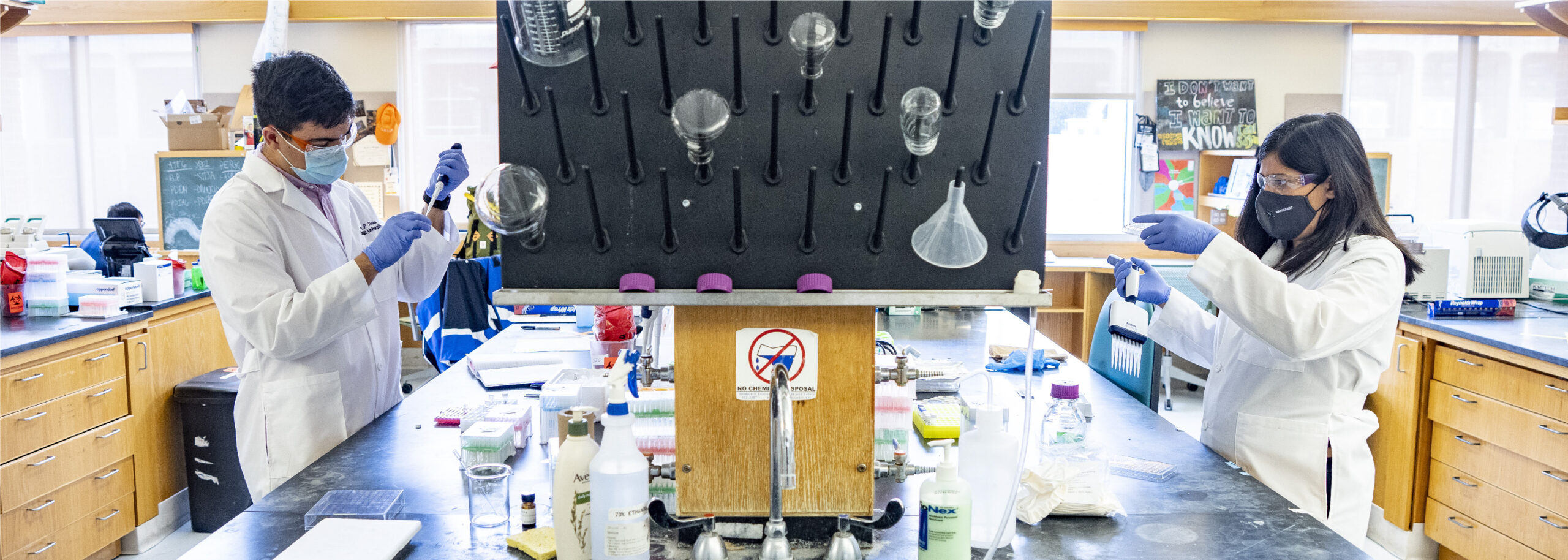Honors Program
Honors research in the Department of Biological Sciences is a rigorous program in which the central feature is a two semester research project under the guidance of a faculty member.
Read more about honors research in biological sciences.
Current Honors Students
| Student | Thesis Title | |
|---|---|---|
 | Madi Baltagulov | Understanding the role of aspartate metabolism in Salmonella enterica infection. |
 | Olivia Ben-Levy | Serotonin (5-HT) as a Modulation of Pancreatitis Progression |
 | Erika Cao | Investigating antennal sensory-motor reflex circuits in Drosophila |
 | Katherine Carrubba | Experimental Evolution of Timekeeping Systems in E. coli |
 | Alex Cho | Investigating the Role of DDX5 and DDX17 in the Wnt Signaling Pathway |
 | Jeremy Clements | Significance of P2Y2 GPCR pathways in cardiac cell differentiation |
 | Lauren Corliss | Elucidating Male and Female Acetabular Development in a Murine Model |
 | Jasmin Elnaggar | Crosstalk between cGAS/STING and necroptotic cell death in myeloid cells |
 | Avery Fortier | Defining Ideal Liver Storage Temperature through Porcine Donation after Cardiac Death Model |
 | Rachael Garcia | Apis mellifera Thermoregulation and Circadian Rhythm |
 | Marina He | Developing Antibodies Against Thrombospondin-1 for Chronic Kidney Disease |
 | Sarah Hourihan | A spatiotemporal analysis of the effect of urbanization on birdsong |
 | Nikhita Joshi | IL-17 Activation of Fibroblasts: Impact on Gastric Tissue During H. pylori Infection |
 | Victoria Li | A mechanism for APC and AP2-clathrin complex interaction upon Wnt activation |
 | Jiayue Liu | Investigating the Role of SCFAs in Pancreatitis: Effects on Microbiome Diversity and Healing |
 | Natalie Loveridge | The Role of the TcdA CROPs Domain in Clostridiodes difficile Toxin Secretion |
 | Abigail Parker | The Pathogenicity of SEC23A Variants in Zebrafish Models |
 | Isabelle Smith | Effects of Hypertensive Endothelial Cell Stretch on the Formation of ex-Tregs |
 | Sidney Vafaie-Partin | Improved in vitro Modeling of Hyperactivity in diseased Microglia |
 | Maggie Zhou | Inhibition of RAS/PI3K/RAF signaling with rigosertib and/or trametinib slows melanoma growth in vitro: the role of CD40 induction |
